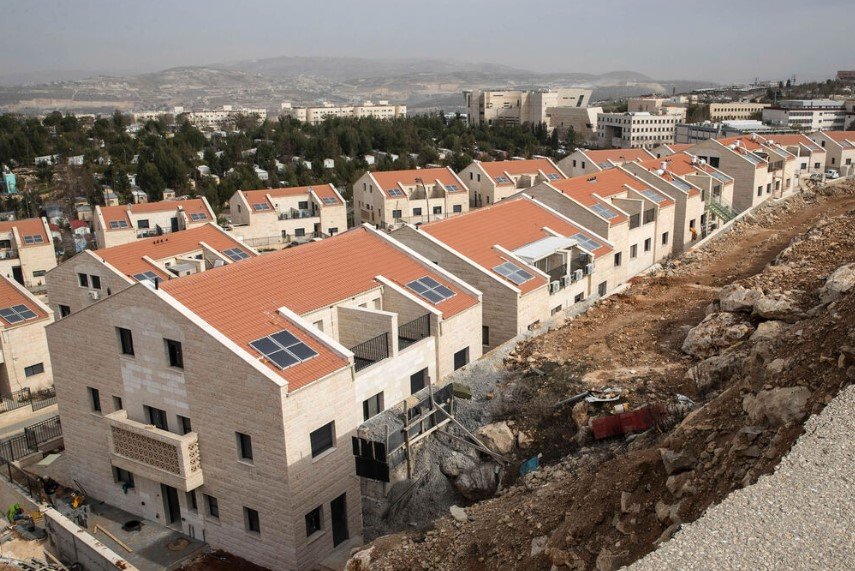Israel has approved a controversial settlement project in the occupied West Bank, a move that critics say could split the territory and harm chances for a future Palestinian state. The decision, made on August 20, 2025, involves building thousands of homes in the E1 area east of Jerusalem, linking it to the existing settlement of Maale Adumim.
Details of the Approval
Officials in Israel confirmed the final go ahead for the E1 project after years of delays. The plan includes around 3,400 new housing units, according to statements from key figures involved.
This approval came from the civil administration, which oversees planning in the West Bank. Finance Minister Bezalel Smotrich, a strong supporter of settlements, played a key role in pushing the project forward. He described it as a step to strengthen Israel’s hold on the area.
The E1 zone covers about 12 square kilometers and sits between Jerusalem and Maale Adumim. Construction here has been on hold due to global pressure, but recent political shifts in Israel cleared the way.
Local leaders in Maale Adumim welcomed the news. Mayor Guy Yifrach called it a positive development for the community, saying it would improve connections to Jerusalem.
Historical Background
The E1 project has a long and troubled history. Plans first emerged in the 1990s, but strong opposition from the United States and European countries kept it stalled for decades.
Israel captured the West Bank in the 1967 war and has built settlements there ever since. Over 500,000 Israelis now live in these communities, which most of the world views as barriers to peace.
Past U.S. administrations, including those under Presidents Obama and Biden, urged Israel to drop E1 plans. They argued it would disrupt Palestinian movement and statehood dreams.

In recent years, Israel’s government has sped up settlement growth. This fits into a broader pattern, with over 10,000 new units approved in the West Bank since 2023.
Tensions have risen amid ongoing conflicts, including the war in Gaza that started in October 2023. Settlement expansions often spark clashes between Israelis and Palestinians.
Impact on Palestinian Statehood
Experts warn that building in E1 could divide the West Bank into northern and southern parts. This would make it hard to create a connected Palestinian state.
The area is key because it links major Palestinian cities like Ramallah and Bethlehem. Settlements here would isolate east Jerusalem, which Palestinians want as their capital.
Palestinian leaders say the project turns the West Bank into disconnected zones. They compare it to isolated areas controlled by checkpoints and settler groups.
Here are some potential effects on daily life:
- Increased travel restrictions for Palestinians, who already need permits to move around.
- Loss of land for Bedouin communities, with thousands at risk of displacement.
- Heightened security issues, as settlements often lead to more violence in the region.
- Economic strain, limiting access to jobs and resources in Jerusalem.
A report from a peace group estimates that E1 could displace up to 7,000 people from 22 Bedouin groups.
Global Reactions and Criticism
The Palestinian Authority quickly condemned the approval. They called it a blow to the two state solution and a way to fragment their land.
International voices echoed these concerns. France urged Israel to abandon the plan, saying it harms peace efforts.
The United Nations has long stated that all West Bank settlements break international law. This view comes from resolutions and court rulings over the years.
Even some Israeli critics inside the country worry about the long term effects. They argue it could lead to more isolation for Israel on the world stage.
In the U.S., reactions have been mixed, but past policies show opposition to such expansions. Recent statements from officials highlight the need for talks to resume.
Legal and Ethical Concerns
Under international law, the West Bank is occupied territory. Building settlements there violates rules set by the Geneva Conventions.
Israel disputes this, claiming historical and security rights to the land. But most countries do not accept that argument.
Human rights groups track settlement growth closely. They report rising evictions and demolitions of Palestinian homes.
| Key Facts on West Bank Settlements | Details |
|---|---|
| Total Israeli Settlers | Over 500,000 |
| Year West Bank Occupied | 1967 |
| New Units Approved Since 2023 | More than 10,000 |
| E1 Area Size | 12 square kilometers |
| Potential Homes in E1 | Around 3,400 |
This table shows the scale of the issue and how E1 fits into larger trends.
Ethical debates focus on fairness. Supporters see settlements as vital for Israel’s safety, while opponents call them land grabs that ignore Palestinian rights.
What Happens Next
The approval means construction could start soon, but legal challenges might slow it down. Palestinian groups plan to fight it in courts and through global appeals.
Peace talks remain stalled, with no major progress since 2014. This project could make future negotiations even tougher.
Observers predict more unrest in the West Bank. Recent months have seen spikes in violence, tied to settlement activities.
For lasting peace, many experts call for both sides to address core issues like borders and security.
Share your thoughts on this development in the comments below, and pass this article along to spark informed discussions.
